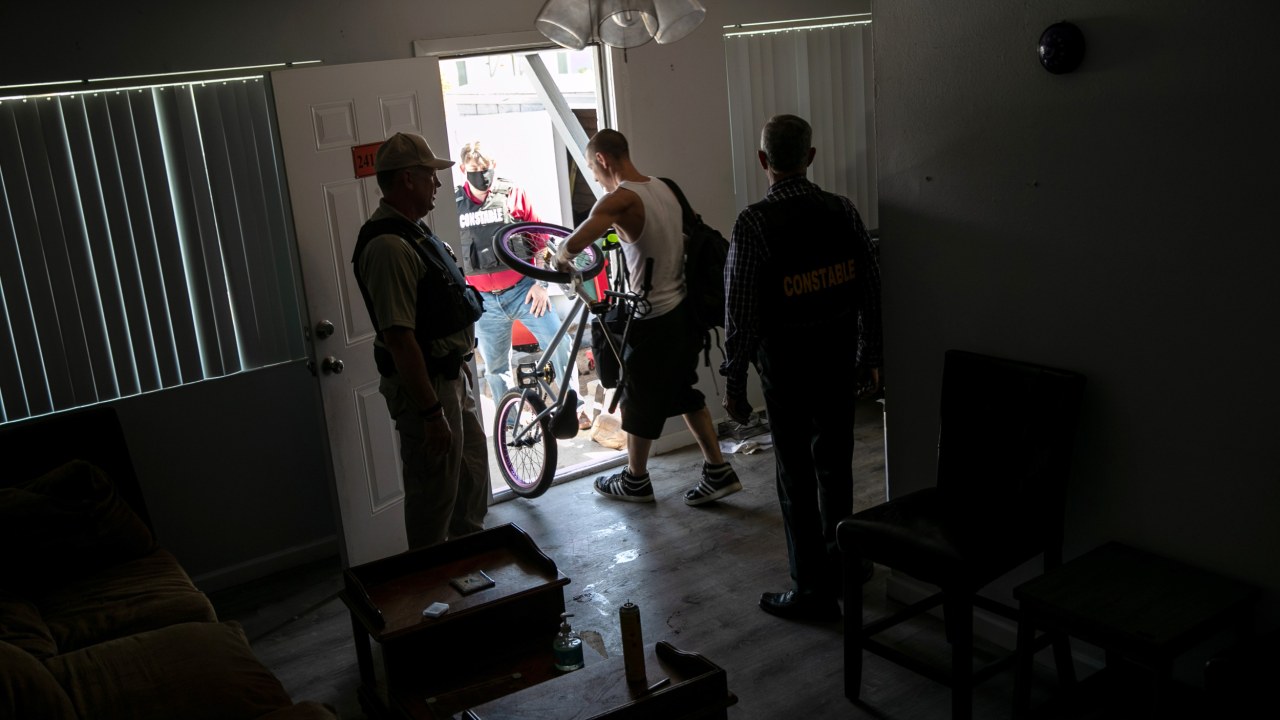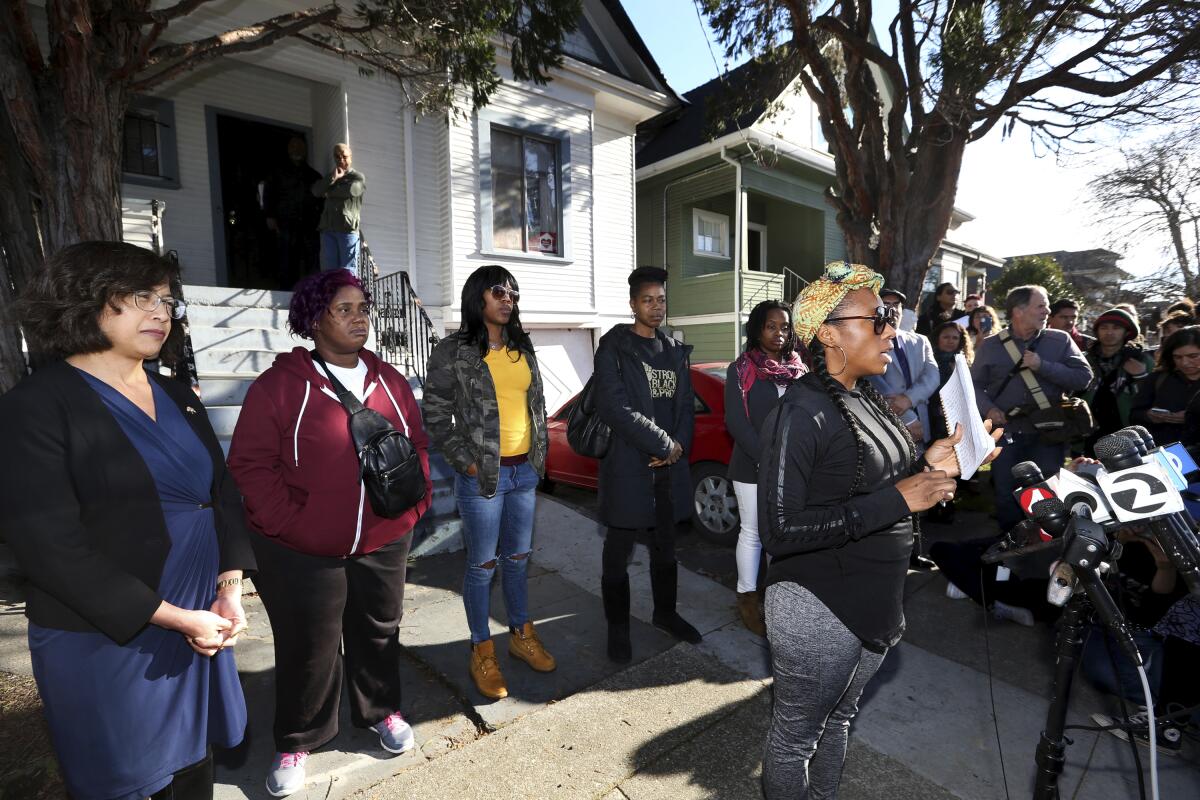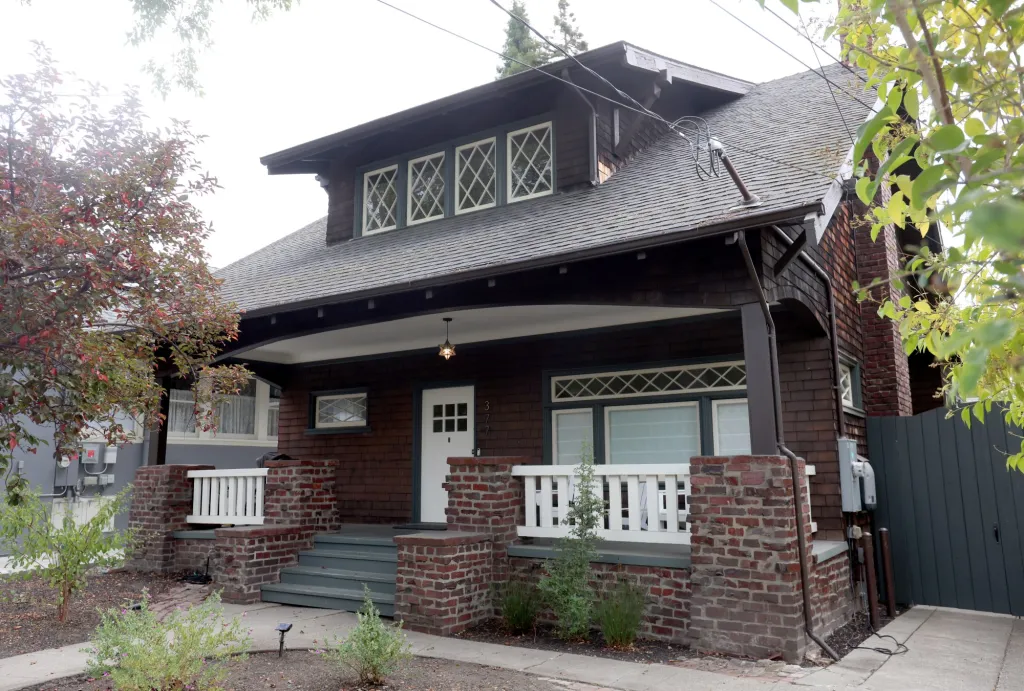In Los Angeles, homeowners face an unprecedented crisis as thousands of properties become occupied by squatters. Daniel Yukelson, the executive director of the Apartment Association of Greater Los Angeles, highlights the severe impact of this issue, noting that these unwanted residents not only live rent-free but often cause significant property damage and even physical injuries to property owners.
Despite squatting being illegal in California, the legal protections afforded to these squatters complicate their eviction, forcing landlords to spend exorbitant amounts on legal fees.

The Rise of Vigilante Squatters Removers
As the legal system grapples with the slow and costly process of evicting squatters—often taking up to a year—some landlords have turned to quicker, albeit riskier, solutions. “Vigilante squatter removers” have emerged as a less expensive and faster alternative to traditional legal channels.
However, as Yukelson warns, this approach mirrors the “wild, wild West,” where violence and harm could eventually befall both the squatters and those hired to remove them.
Meet the Squatter Squad: the California vigilante group who 'out squat the squatters' as part of efforts to combat the growing crisis plaguing American homeowners –https://t.co/coR9ObfzIk via @MailOnline
— Laura Parnaby (@lauraparnaby_) April 1, 2024
The National Response: A Shift Towards Stricter Laws
While California struggles with its squatting problems, other states are actively revising their laws to empower landlords. Following Florida’s enactment of an anti-squatter law, states like New York, Georgia, and Alabama are also moving towards classifying squatting as a criminal offense, either as a misdemeanor or a felony.
This legislative shift reflects a growing recognition of the need for more robust protections for property owners.

California’s Legal Landscape and the Push for Change
In California, the process of evicting a squatter is not only lengthy but fraught with legal hurdles. Landlords must provide a three-day written notice and navigate a complex eviction process that includes high fees, court orders, and even sheriff lockouts.
Additionally, squatters can make “adverse possession” claims, potentially gaining legal ownership of properties they occupy illegally.
Governor Gavin Newsom has taken steps to address these issues by signing Senate Bill 612, which allows property owners to request police assistance to deal with trespassers or squatters. However, significant challenges remain in effectively removing squatters.
The Role of Social Media and Increasing Squatter Savviness
Alan Chang, founder of Vested Title & Escrow, points out that the squatter problem is exacerbated by social media, which provides a plethora of tips for bypassing legal barriers and targeting vacant properties.
This ease of access to information has led to a nationwide increase in squatting activities, not just in metropolitan areas but across the country.
Impact on Homeowners and Communities
Many homeowners, particularly those who have defaulted on payments and left properties vacant, find themselves targeted by squatters. These properties, often stuck in foreclosure limbo, become prime targets for occupation.
Homeowners like Jaskaran Singh in Bellevue, Washington, have suffered substantial financial losses, in his case $80,000 in unpaid rent, exacerbated by legal restrictions that prevent him from approaching his own property.

The broader community also suffers as properties occupied by squatters frequently become centers for criminal activities, including drug dealing. This not only devalues the properties but also harms neighborhood safety and cohesion.
The Need for Balanced Solutions
The squatting crisis in California and beyond calls for a balanced approach that protects the rights of property owners while addressing the needs of those legitimately struggling with housing.
As states like California consider tougher laws against squatting, it is crucial to also contemplate measures that support housing stability and address the root causes of squatting.
For now, homeowners and landlords continue to navigate a challenging landscape, hoping for legal and societal solutions that will restore their rights and revitalize their communities.


